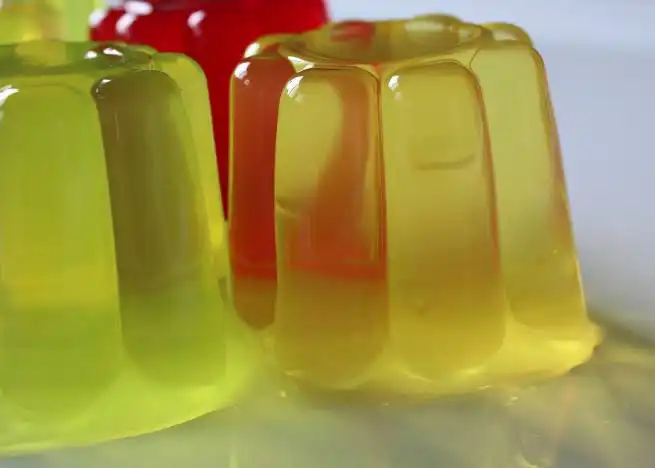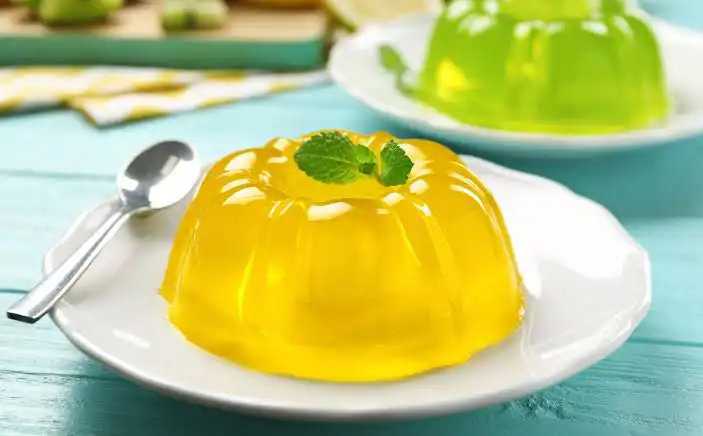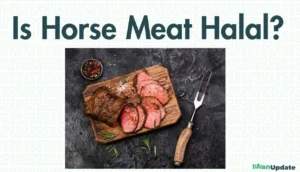Is Beef Gelatin Halal? A Comprehensive Guide

Gelatin is a common ingredient found in many everyday food products, often used as a gelling agent. It’s derived from collagen, a fibrous protein found abundantly in animal skin, bones, and connective tissue.
When this collagen is extracted specifically from cattle, it is referred to as beef gelatin. For Muslims, determining whether beef gelatin is halal is essential, as it depends on how the animal was slaughtered and processed according to Islamic dietary guidelines.
The method of slaughter can make the difference between something being halal (permissible) or haram (forbidden).
Beef gelatin is widely used in both food and non-food products, from candies and desserts to pharmaceutical capsules and even beauty products. However, the permissibility of consuming beef gelatin largely depends on whether it meets the strict halal standards outlined in Islamic law.
Is Beef Gelatin Halal?
Yes, beef gelatin can be halal if it is sourced from halal-certified cattle that have been slaughtered according to Islamic law. The halal status of beef gelatin in Islam can vary based on several factors:
Scholarly Opinions: Different scholars may have varying opinions on the permissibility of gelatin. Some may accept gelatin from halal animals as halal, while others may have concerns about the source or the process.
Source of the Gelatin: If the beef gelatin is derived from halal-certified cattle that have been slaughtered according to Islamic law (Zabiha), it is considered halal. The animal must be healthy at the time of slaughter, and the name of Allah must be invoked during the process.
Processing and Ingredients: The processing methods and any additional ingredients used in the gelatin should also comply with halal standards. If any non-halal substances are mixed with the gelatin or if the processing equipment has been used for non-halal products, it could render the gelatin non-halal.
Certification: It is advisable to look for halal certification from a reputable organization. This ensures that the gelatin has been sourced and processed according to Islamic dietary laws.
READ ALSO: Are Eggs Halal? A Detailed Guide
Islamic Ruling on Beef Gelatin
According to Islamic dietary laws, for any animal-based product to be halal, the animal must be slaughtered according to strict guidelines.
These guidelines include invoking the name of Allah at the time of slaughter and ensuring the animal is drained of blood. The gelatin derived from such animals is halal and permissible for Muslims to consume.
Islamic scholars largely agree that beef gelatin is halal only if the animal from which it was sourced was slaughtered following Islamic procedures.
If the cattle were not slaughtered in accordance with Shariah law, then the gelatin, and any product containing it, is considered haram and impermissible to consume.
Some scholars have discussed the process known as “Istihalah” (transformation), where a substance undergoes a complete change in its physical and chemical properties. In this case, some argue that the haram nature of the substance may be altered, rendering it halal.
However, most scholars, including those from major Islamic schools of thought, believe that gelatin does not fully undergo this transformation. Therefore, the majority opinion remains that beef gelatin from animals not slaughtered in the Islamic way is haram.
Maulana Nabil Khan highlights this issue by stating:
“If the cow had been slaughtered according to Shariah, then there would be no harm in eating it and it would be considered halal. However, if the cow was not slaughtered according to the rules of Shariah, then the gelatin will be haram.”
Scholars also discuss the argument of “Qalb al-Mahiyah” (complete transformation) and its application to gelatin production. While a minority of scholars believe that gelatin undergoes such a transformation, most do not accept this reasoning, thus advising caution in its consumption.

Common Foods Containing Beef Gelatin
Gelatin is a versatile ingredient and is widely used in a variety of products, especially in the food industry. Below are some common foods that may contain beef gelatin:
- Confectionery: Gummy candies like Haribo gummy bears, Starburst, and marshmallows.
- Dairy Products: Ice cream, yogurts, and certain dairy drinks, as gelatin can help improve texture and consistency.
- Desserts and Snacks: Rice Krispies, puddings, and various packaged desserts.
- Jams and Spreads: Some fruit jams and jellies contain gelatin as a thickening agent.
- Beverages: Certain fruit juices and energy drinks may use gelatin as a clarifying agent.
As beef gelatin is commonly used to create the desired texture in these foods, it’s crucial for Muslim consumers to verify the source of the gelatin before consumption.
Halal Beef Gelatin Products
Although many gelatin-containing products are not halal, there are options available in the market that contain halal beef gelatin. These products are specifically sourced from animals slaughtered in compliance with Islamic guidelines. Below are a few examples:
- Halal Crispy Treats, Marshmallow and Crispy Rice:
Made by Barakat Foods, this product is a halal alternative to traditional Rice Krispies. The gelatin used is 100% halal, as indicated on the packaging. It’s also made with halal marshmallows, providing a safe option for Muslim consumers. - Annie’s Organic Original Crispy Snack Bars:
This product offers a halal-certified crispy snack alternative for those concerned about the source of gelatin. - Ziyad Halal Marshmallows:
Ziyad offers halal marshmallows, available for purchase online through retailers like Amazon, which are certified halal and suitable for a range of desserts.
When shopping for products containing gelatin, always check the packaging for halal certification. This ensures that the gelatin used is sourced from animals that were slaughtered following Islamic guidelines.
Alternatives to Beef Gelatin
For Muslims looking for alternatives to beef gelatin, especially in regions where finding halal gelatin can be difficult, there are several halal-friendly substitutes available:
- Agar Agar:
Agar agar is a plant-based gelling agent derived from seaweed. It is widely used as a vegan substitute for gelatin and is halal-friendly. Although it doesn’t technically qualify as gelatin, it serves the same purpose in many recipes like jellies, puddings, and desserts. - Fish Gelatin:
Derived from fish collagen, fish gelatin is a permissible alternative as fish are exempt from Islamic slaughtering requirements. Fish gelatin is commonly found in specialty or halal stores and can be used in the same way as traditional gelatin in many recipes. - Pectin:
Pectin is a plant-based thickener that is typically extracted from fruits like apples and citrus. It’s widely used in jams, jellies, and other confections and is a completely halal alternative to gelatin.
Final Considerations
In the Western world, particularly in the US, many gelatin-containing products are made using gelatin derived from non-halal sources, such as cattle not slaughtered according to Islamic law or even from pigs.
As pork is clearly haram, and beef gelatin is only halal if the animal is slaughtered in the Islamic way, it’s important for Muslim consumers to carefully read ingredient labels and look for halal certification.
While some products, such as Haribo gummy bears, may contain halal gelatin if produced in Muslim-majority countries like Turkey, many products made in the US do not meet halal standards. Always look for the halal label on the packaging, especially when purchasing gelatin-containing products.
If you’re ever in doubt about the halal status of gelatin in a product, it is safest to avoid it. There are now numerous halal-friendly and vegan gelatin alternatives available, which makes avoiding doubtful products easier.
Whether it’s fish gelatin, agar agar, or pectin, these options can help ensure that your diet remains in line with Islamic guidelines.






